I knew what was coming.
It had been long enough that it was long since spoiled for me. I still watched it, because it was important to watch to the very end, to see how it fit in with the larger context of it all.
Tony flips through the jukebox on the table, Carm comes in just as the piano melody starts. The camera shows other slices of New Jersey Americana at each booth—boy scout troops, young couples. Carm and Tony exchange pleasantries and look at the menu. Tony bristles at finding out Meadow is at the doctor to switch birth control, but bites his tongue. Growth. Carm asks a vague question about Tony’s current business dealings as the door jingles and a tough-looking customer walks in, followed by AJ, who has facial hair now.
“Onion rings,” AJ says.
“Best in the state, as far as I’m concerned,” Tony responds.
The guy who walked in before AJ is at the counter. Is he nervous about something? He’s fidgeting and looking in what we assume is the direction of the Soprano family’s table.
Meadow pulls up and frantically tries to parallel park but has to try again.
AJ grumbles about his dead-end job but says he should “Focus on the good times.” Tony accuses him of being sarcastic, but AJ reminds him that Tony was the one who said that in the first place, probably in an episode a few seasons ago. Who can remember? Meadow is absolutely struggling to park that car, and that guy walks by the table on the way to the bathroom. Onion rings arrive.
Don’t stop believin’
Hold onto that feelin’
The door bell jingles again and Tony glances up.
Finales are tough.
In the history of television, there are a few finales that we remember for the good and the bad. Clichés are born out of the ones that don’t work. These are the ones where we’ve spent years of our lives, growing alongside the characters, making appointment viewing and memories with our own friends and families as we anticipate how the whole thing will end. We measure our time in real life by these shows. And sometimes, when they end, you watch the credits and think, “What? That’s it?” So, what, they were in purgatory? He’s a lumberjack now? That’s it? They just reminisce in a jail cell? That’s it? There is good, there is bad, and there is just the downright underwhelming.
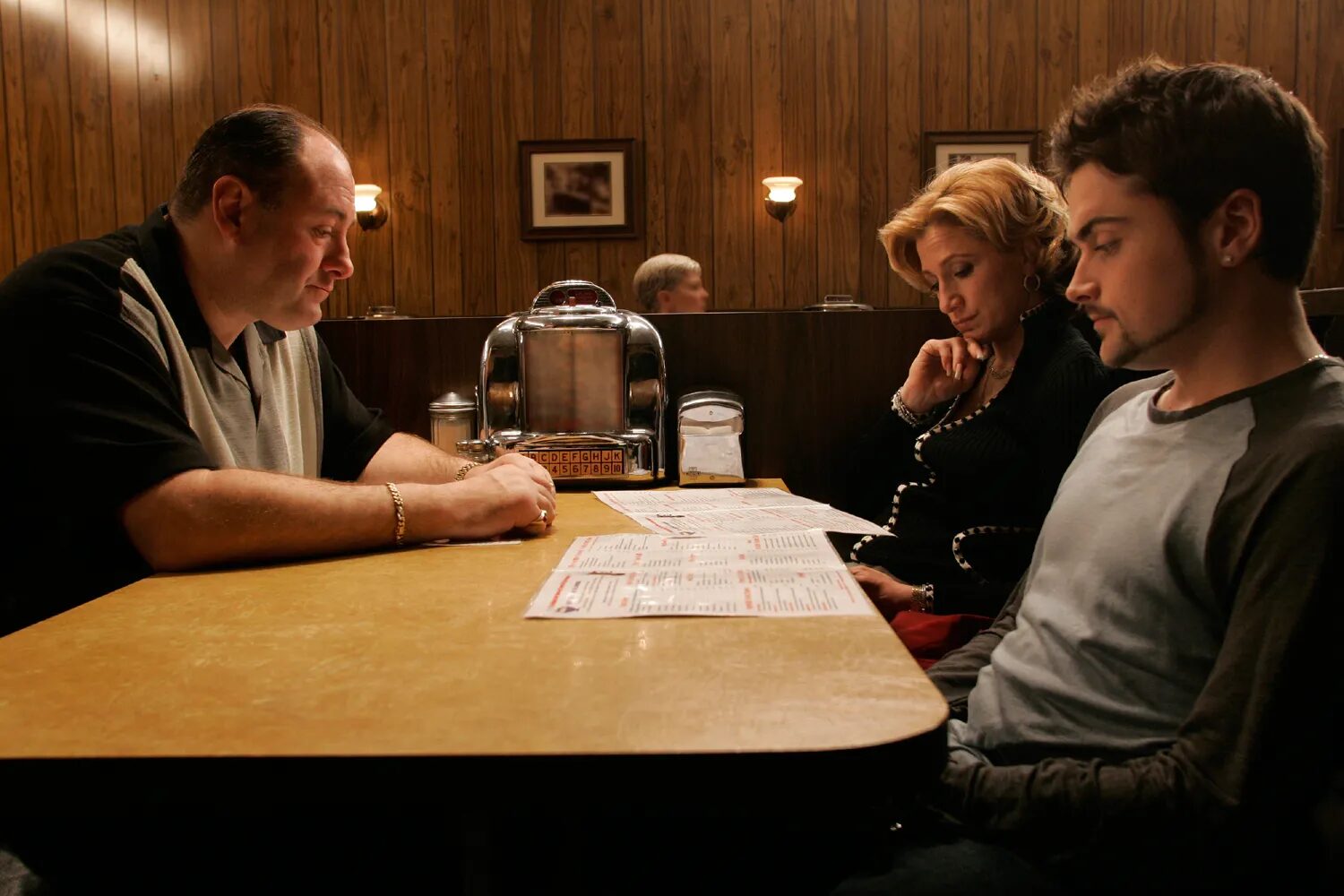
But, do we have to be whelmed by the finale, or can things just end without it needing to be a grand finale?
Podcasts, compared to television, are a newer medium. In essence they’re of course just radio shows with a much different delivery system than radio broadcasters could’ve conceived back in the days of talk radio, serial narratives, or comedy broadcasts. The term itself is almost meaningless now, too, what with the “pods” of “podcast” being outdated tech themselves. “Podcast” is just a catch-all term for people talking while audio is recorded, often with video components as well.
Maron never did the video part, though. He made a point of that, which sort of makes saving it for the end a moment make you go, “Huh, so, you just didn’t mean that?” (Now, the video did come from the Obama Instagram account, so it’s likely the case that Maron had no control over that—I don’t mean to paint him as some hypocrite here, but still.)
—
WTF WITH MARC MARON was one of the trailblazing shows of the podcast boom. He’ll tell you himself, and has. WTF started 16 years ago, and has been releasing new episodes twice weekly without fail, even as Maron himself faced the ups and downs of nearly two decades worth of life, with career changes, the entertainment industry’s various paradigm shifts, a burgeoning acting career, the unexpected loss of his partner, and the dramatic shifts in the way the United States of America looks and feels.
Twice a week, we’d hear Maron interview people across comedy, film, television, art, music, and beyond. Young, old, plugging something or not. His wasn’t so much an interview style as just his manner of speaking. Combative at times, opinionated, compassionate, empathetic, stubborn, fawning, confused—no two interviews were exactly the same. And it’s because of the human nature of it—the authenticity of his interviews—that people were so drawn to him, guests included. He was able to pull guests that other podcasts simply could not have done, at least not in his way. They came to his house, met his cats, had a cup of coffee that he made them, maybe some lunch, and sat in his garage. Springsteen, Bourdain, Robin Williams, Norm, Jane Fonda. As he kept going, the idea of what a WTF guest was became less clear. He had Ariana Grande on, and my own knee-jerk reaction was that he would sort of look at a young popstar with disdain. Instead he was incredibly excited and complimentary of her work. Maron changed over time—it was 16 years, after all. He was a different guy by the end than he was in the beginning. There was an arc to Maron, which was well laid out by Defector’s Diana Moskovitz (a feature Maron himself read on the air).
And then he said he was done, or at least wrapping things up.
He hadn’t given a date yet, but in June, for episode 1648, Maron told his guest John Mulaney that he was ending the podcast on his own terms. And this, to me at least, felt like episode one of the final season.
Much like how Kathy Bates explained in THE WATERBOY that a snake don’t really have parts, a podcast like WTF doesn’t really have seasons. But this was a tide change. With each episode after it, you had the sense that things were winding down; the idea he was hanging it up factored into each monologue and even interview, with guests congratulating him on ending things on his own terms while having achieved what he had achieved in the platform. Maron, true to form, typically responded to praise with, “Yeah.”
With each passing Monday and Thursday, I looked to see which guests he would bring on as they rounded the final turn and entered the home stretch. I was rarely disappointed. There was a real air of “he’s doing whatever he wants” without concern for press cycles or anything like that. His episode with Largo owner Mark Flanagan was a fascinating ride through LA comedy history, but also the Troubles. His interview with Mariska Hargitay was an emotional exploration of a television icon’s difficult relationship to her family tree, as well as accepting her own career staying on one single path for years and years, and the beauty of that.
The monologues were just as essential as the interviews each week, as Maron grappled with ending something so inextricably linked to his public persona and career, worried about his cats, embraced the joy in acting, dealt with his own mental health struggles, vented and proselytized about the state of the government and politics and society, and noodled around on guitar. The end drew closer with each passing week, and it felt like when you know you’re moving so you do things little by little, and suddenly you look around and you have no more decorations on your wall. Your couch is gone so you sit in folding chairs to watch TV, until your TV is gone and you set your laptop on a cardboard box.
—
At this point in the ride, the finale was still just a hypothetical. It was Schroedinger’s Podcast Finale, where it felt like the listener was on the side of believing it would be good, that it would tie things up nicely and we’d all listen to the theme music at the end and feel like it was time well spent.
I won’t say “the truth” is that the ending felt underwhelming, because that’s just one way to look at it. What I will say is that Maron might have accidentally put out two perfect finales before he actually made a final episode.
The first was with Judd Apatow, who asked to come on the show and play clips of old interviews, some dating back to a point where Marc’s physical voice sounds different, and ask him to reflect on them. It was a rare moment where the host was the one fielding questions and looking at how he handled things. He listened to his interviews with icons who have passed away, he revisited the infamous Gallagher episode where the enemy of watermelon stormed off in a huff prompting Maron to say, “You’re done?” The episode sort of showed the listener and the host at the same time the size of this thing that fits in our pocket. The universe of WTF.

And then there was the penultimate episode, where Marc took to the mic solo, and spoke to us, the listener. By the end, when he once again punctuated the episode with his famous tribute to his long-lost cats, he was audibly choked up. And, you know what, we were, too. We were emotional about those cat angels everywhere, and then he surprised us with a bona fide clipshow, set to the tune of The Flaming Lips’ “Do You Realize?,” pulling heartfelt moments from the show’s history like a call from his mother telling him how proud she is, and pushing the limits of what an audio-only format could do to the point where it felt like we were really watching something unfold.
It was the perfect ending. He did it.
But there was still one left.
We knew it wouldn’t be recorded in the garage. And we were pretty sure it wasn’t a very special “Live from the Riyadh Comedy Festival” episode, so another Louis C.K. episode was probably not going to happen.
But it was a return guest, this time former president Barack Obama, who Maron famously welcomed to the Cat Ranch in 2015. This time, Maron made the trip to D.C. to discuss, well, everything, including ending something you did for a number of years that sort of defined your career.
And, you know, that’s fine. It’s just … You know. We did this already, didn’t we?
—
Finales are tough. They can be perfect, they can be good, they can be bad, they can be frustrating, and they can be just sort of “meh.” The question we all ask ourselves after a finale, regardless of its quality, is if we feel like it has done its job. A finale should complete the arc with some sense of closure. It should tie up all loose ends. It should validate the time spent getting to this point beyond just saying that the real [insert name] was the friends we made along the way. I think it should be able to stand up as a good episode in a vacuum, independent of the rest. All’s well that ends well, as they say.
Using all of that criteria, I don’t know that this was the one to go out on. I’m sure Maron does not care whether I think that or not. But for a show that has reached such heights, it felt like a bit of a step back, even if it did put a cap on the throughline of the U.S.’s descent into fascism that Maron has so often discussed in his monologues. But it did something that plenty of people on the left especially become irritated with—it went to Obama for legitimacy and input rather than looking forward to a new crop of leaders and thinkers. Obama said as much in the episode, that once he retired he was sort of annoyed by how quickly he was asked to weigh in on things rather than being able to simply coach the next generation of Democratic leaders or, God forbid, chill with his wife and kids in a non-official capacity.
And maybe more striking than the guest or the conversation was the fact that, for the first time in over 1,600 interviews across 16 years and countless conversations about how audio-only is the best way this show works, there was video on social media, at least from the former president’s end.
To quote Barack Obama: “Let me be clear.” The bottom line here is that Marc Maron doesn’t need our approval on the final episode to say that the 1,685 before it were worthwhile, much like how the last five or so minutes of THE SOPRANOS does not negate it still being regarded as one of the best, if not the best, television shows of all time. Does the finale get to be the thing that cements a legacy? I don’t know. It does seem like when it’s done well it’s at least easier to point to the singular body of work without any caveats. It’s definitely hard for me to recommend someone watch LOST despite having enjoyed some of it.
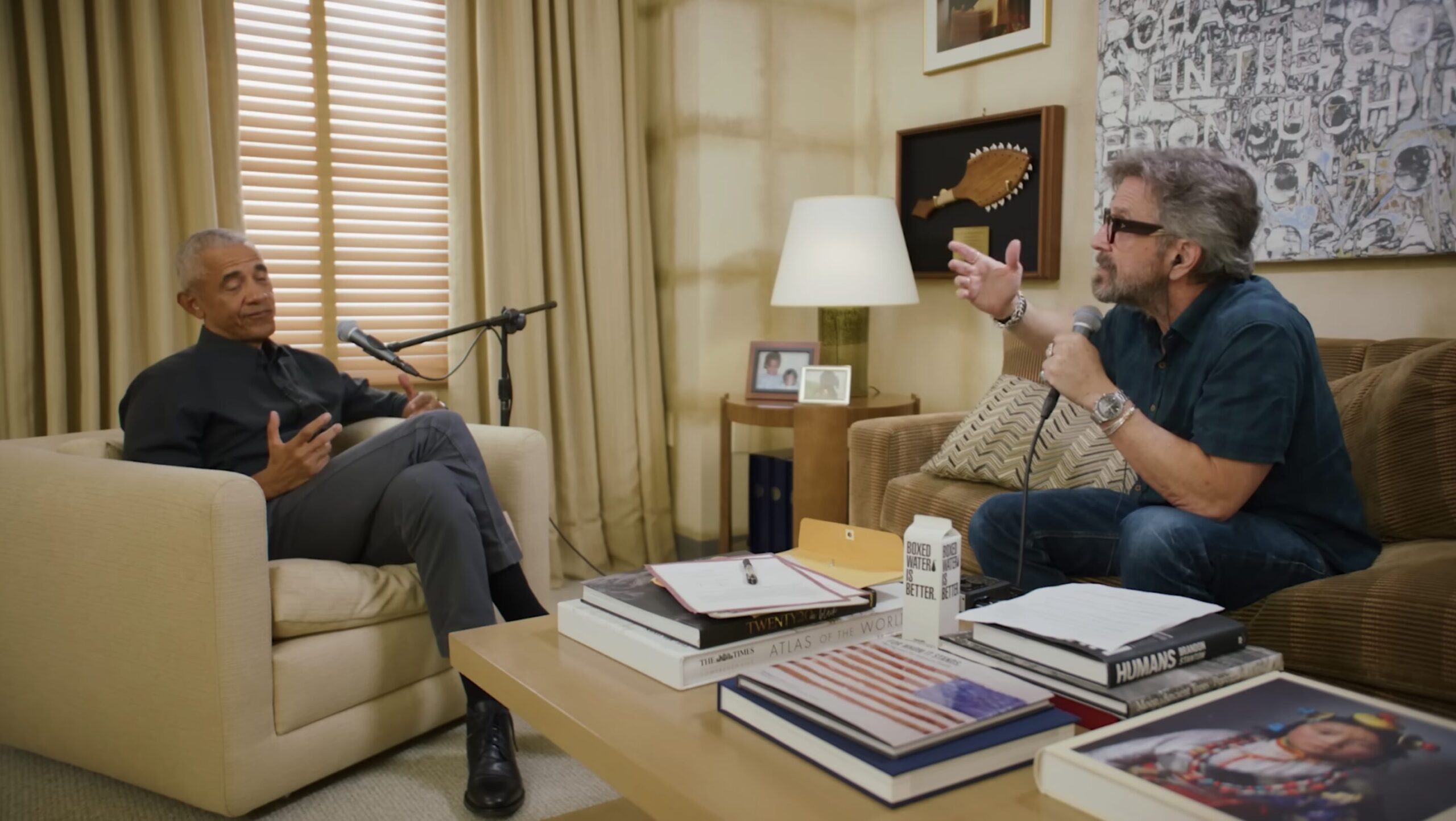
But podcasts are different, right? Should they be held to the same standards as older media, which may feel antiquated in the podcast era? They’re not TV, at least not yet until they fully eclipse traditional talk shows. Maron was a pioneer with WTF. And just like he set out into the wild west of podcasting, he’s sort of the first of his kind to end a podcast series with this much hype and attention attached to it. So, when it finally was over, I think it’s natural that some listeners didn’t know how to feel. Did he stick the landing? Does he owe us a perfect ending? Would it have been better if it had simply been the last episode rather than the finale? Would it have been different if there were no big leadup and unofficial final season? What’s more appropriate: the Irish goodbye or making time to say an individual so-long to everyone at the party before making a grand exit?
These are all questions that don’t have a tidy answer. Endings are rarely tidy or clean. And the simple fact is that we don’t have a lot to compare it to, because Maron was a trailblazer in his exit.
His own fanbase is somewhat divided. A quick look at the discussion thread on the r/MarcMaron episode link shows different reactions.
“I feel like this gave Marc some peace of mind, and I think it will give others some respite in these chaotic times, so I’m glad for that. Narratively, it’s a really nice bookend for the podcast, and it’s kind of cool to see it come full circle.”
“Wow what a great guest to end this amazing podcast with. Bawled my eyes out listening to Marc’s episode so need bit to process before listening to this one lol”
“I don’t know why I’m disappointed, but I am. Doesn’t feel quite right. Not mad about it, big get, but I thought it would be a comic or it would be Brendan or it would be somebody on his bucket list.”
“Incredibly fitting given the show’s history, but also a relic of an era where neoliberalism and platitudes/hollow immaterial gestures about decency couldn’t stave off the rise of fascism. Eh”
—
Other podcasts have ended, obviously. But a lot of them feel like a band breaking up before starting other bands. Members leave, members join up, the group disbands and starts new ventures together. There’s not as much of a sense of totality as when what is essentially a one-man operation announces that they’re hanging it up. And there was no deep sense of importance in those instances, because to them it might have just been a pandemic project or another potential revenue stream. It was obviously more than that for Maron.
With this golden age of podcasting, there will no doubt be others that end in similar fashion, with prolonged goodbyes rather than simply fizzling out and leaving listeners to realize they hadn’t seen a new episode pop up in a few months. Some will go out on highs, others will not. But, like he had started, Maron will be the one that we look at as the one who did it first. And that’s worth something, whether the finale was what we had hoped for regardless.
The inarguable point is that, like it or not, that was the end. Now you can discuss it amongst yourselves as much as you want. And like legacy TV before it, younger generations that were too young for the original run might go back—maybe some people will tell them that it’s great until the finale, maybe they’ll already know what was coming and can just opt out, taking what they want from it without much investment in the ending, and maybe they’ll love it. It will at least be different for them having not seen it in real time, having not anticipated anything, like it was for me watching a legacy HBO show ending nearly 20 years after its original air.
It’s tough to compare a podcast wind-down and finale to the things we’ve experienced already like television shows and band breakups, because they’re not like-for-like parallels. Like Maron’s legacy in podcasting, I’m sure we’ll compare his ending to others when they inevitably follow suit. Some will say it goes down as a flawless bow-out moment, others will say it felt underwhelming, others might say that it made them outright angry and ruined the show for them. I guess we’ll figure that out down the road, right?
But to quote another movie, “It’s like THE SOPRANOS. It’s over. Find a new show.”


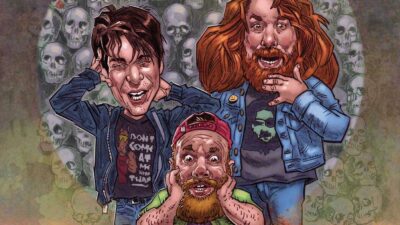

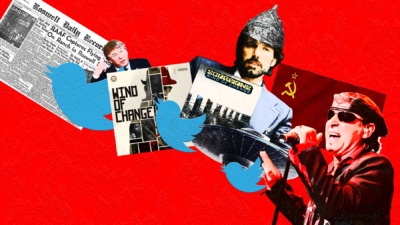

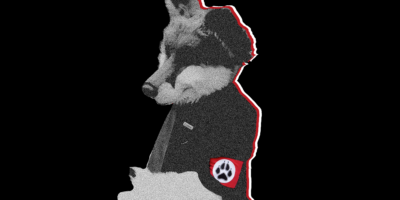




Comments